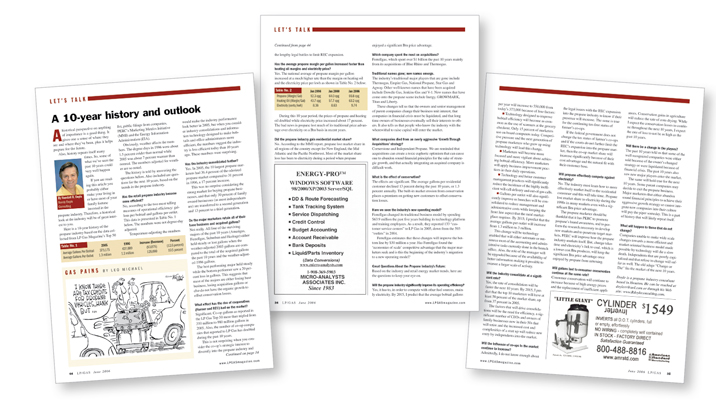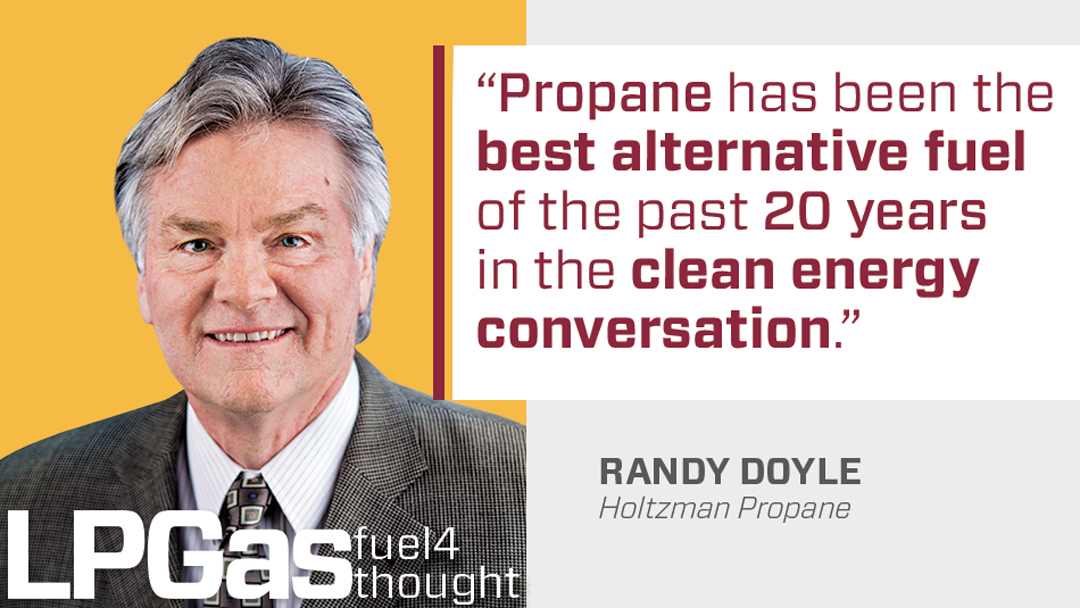Looking back, moving ahead: 8 factors to define propane’s future

For two decades, Randy Doyle has analyzed the propane market and offered his business recommendations in LP Gas. (Archives: LP Gas)
During my 20 years of writing for LP Gas, my focus has been on industry gallons and all other factors that either directly or indirectly impact the industry’s best measure. In my final column, I want to present the most noteworthy observations that relate to our industry’s 20 percent decline over the past 20 years and that will define the industry’s future.
1. Propane versus electricity: Rising electricity prices combined with the valid fear of grid failure have created perhaps the most beneficial market conditions for propane in the past 25 years, especially in the residential market. However, we likely will not exploit this growth opportunity because of the headwinds of low consumer awareness about propane, and builders and the HVAC and plumbing industries will continue to default to electricity as the fuel of choice. Negative messaging about “dirty” fossil fuels and few propane companies that sell and install gas-burning appliances add to the challenge.
2. Climate change: I fear our recent progress with environmental messaging and focus on renewable propane is too little, too late. Our small industry’s “go it alone” messaging, rather than a strength in numbers collaboration, will not move the needle. Our attempts to distance propane from both “dirty diesel” and natural gas’ polluting methane emissions and position propane as the cleaner fossil fuel will only contribute to propane’s demise. No diesel or natural gas means no propane, as we are a byproduct of their production. We’ve capitulated to the climate change pressure by supporting the misleading notion that “renewable” wind and solar electricity is our promising future. We should be thankful to the National Propane Gas Association (NPGA) and state associations that lobby our story to keep propane in the energy conversation and protect us from onerous government policies aimed at fossil fuels.
3. Propane, the best alternative fuel: Propane has been the best alternative fuel of the past 20 years in the clean energy conversation. Autogas, power generation and commercial landscaping all use significant gallons and would have helped flatten our seasonal demand curve. Our insignificant progress in the alternative fuel markets is the No. 1 reason for the industry’s lack of gallon growth. Now that it seems that hydrogen, renewables and electricity have become the darlings of the alternative fuel market, propane may have lost this golden gallon-growth opportunity.
4. Autogas: We cannot expect to commercialize autogas until the propane industry uses its fuel, establishes a reliable service network and makes refueling accessible.
5. Volunteerism: Never forget that the industry members who donate their time and energy to the NPGA, Propane Education & Research Council (PERC) and the state associations are essential pillars of our industry. The industry needs to consolidate its fragmented state associations into about 10 regions while preserving the uniqueness of each state.
6. PERC: The creation of PERC was the previous generation of industry leaders’ greatest contribution. Accomplishing PERC’s mission of growth and safety is totally dependent upon industry engagement (i.e., marketer use of PERC resources and tools) and commercialization of new technology and products. The council must ensure the mission is being effectively accomplished. In its 25-year history, has PERC created value relative to the $1 billion spent?
7. Industry consolidation: Will the next generation of industry consolidators retain acquired gallons and be the flagship for innovation and growth of new markets and applications?
8. Workforce shortage: Finding qualified drivers and technicians will only get tougher because of today’s workforce demographic, and the growing negative perceptions about fossil fuels will not attract young people.
Employers will be required to use new recruitment and retention methods. State association volunteers will be required to do much more to get PERC’s resources and excellent CETP materials used by trade schools. Propane companies must be ready to offer apprenticeships with their local high schools and youth career technical centers.
I am thankful to LP Gas for the opportunity to write about issues impacting our industry. May God’s favor be with each of you and the propane industry.
Randy Doyle is a 40-year industry veteran who serves on the NPGA board of directors and is active in the Virginia Propane Gas Association. He is a past PERC councilor. He consults with Holtzman Propane in Mt. Jackson, Virginia.

















